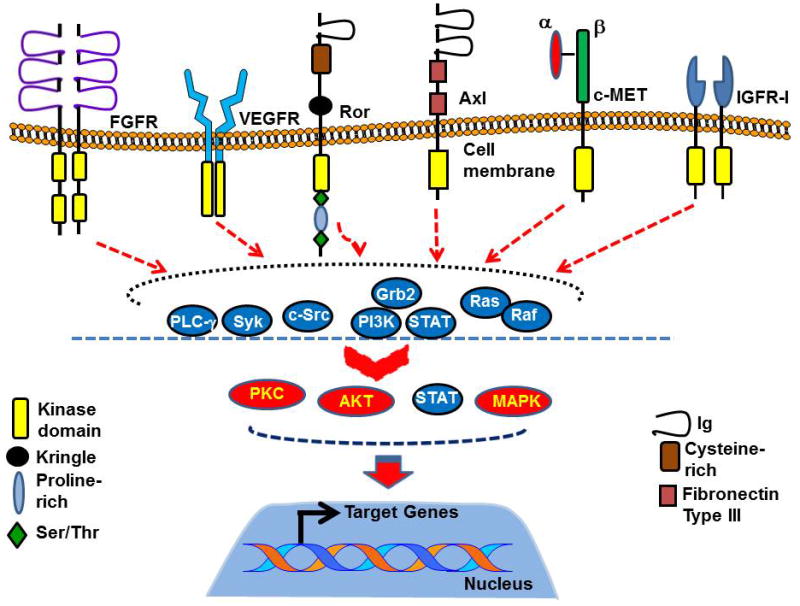Fig. 3. Tyrosine kinase network in CLL.

Leukemic B-cells from CLL patients express multiple RTKs which may directly or indirectly participate in the “Cell Survival” signaling network. As most of the RTK signaling pathways share common intermediate signaling components, for example, Src, PI3K/AKT, we believe that in this “RTK-Network”, one RTK plays the role of the “Predominant RTK” while others play a secondary role likely depending on the risk-factors of the cells. In CLL, upon binding specific ligands, these RTKs may activate multiple signaling intermediates including Src, Syk, Grb2/PI3K, Ras/Raf, PLC-γ leading to activation of the downstream effector signaling components, for example, AKT, MAPK, PKC or STATs, which ultimately activates various specific target genes resulting into cell survival, proliferation and apoptosis resistance. However, expression of constitutively active RTKs in CLL B-cells results into uncontrolled activation of the downstream signaling molecules leading to increased cell survival and apoptotic resistance to therapeutic agents. One such constitutively RTK in CLL we detected was Axl.
